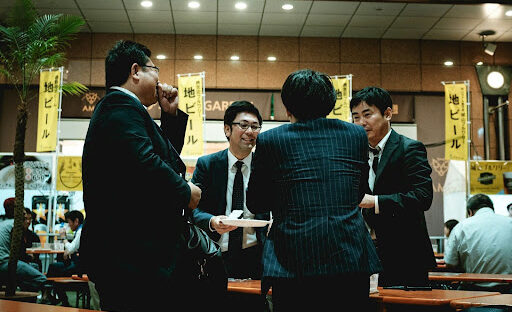Say What?! Decoding Ambiguity with Japanese Businesses

Last time, we explored the complex decision-making process inside Japanese corporations. You might remember that progress takes time, and there are often far more people involved in approvals than you’d expect. That complexity brings us to today’s topic, one of the biggest factors in making things run smoothly… communication.
When doing business in Japan, two things set the communication style apart from what most overseas professionals are used to: ambiguity and reading between the lines. Understanding these concepts could make or break your sales relationships in Japan.
Honne and Tatemae: The Heart of Japanese Communication
You’ll often hear two key words in Japan: honne (true feelings) and tatemae (the polite or public face). Honne is what people really think; tatemae is what they say to maintain harmony.
In many Western workplaces, being direct and transparent is seen as a sign of honesty and efficiency. But in Japan, people often avoid open disagreement to preserve relationships and group balance. Saying “no” directly can be considered rude or confrontational.
So instead, you’ll hear phrases like:
“We’ll consider it.”
“It might be a little difficult.”
“We’ll think about it positively.”
All polite ways of saying “probably not.”
Even in meetings, disagreement is rarely voiced openly. A team member may bring up their real concern privately later or simply express it subtly in a future proposal.

Reading the Room
This is where the phrase “reading between the lines” comes in. Consider it a cultural expectation that you’ll understand meaning through context rather than direct words. It’s about tuning into facial expressions, tone, silence, and atmosphere.
In Japan, a great salesperson is a good talker and an excellent observer. They’ll notice the calculative pause before a reply, the slight head tilt, and even the choice of words in an email. It’s these small cues that often reveal what the client really thinks but won’t say outright.
If you suspect hesitation, don’t confront it directly. Instead, gently ask:
“Are there any points you’re concerned about?”
“How do you feel about this aspect?”
Polite, open-ended questions help clients express their real thoughts without losing face. That’s how you build trust.
Want to go deeper? YOUNEEDS helps international companies enter and succeed in the Japanese market through expert B2B sales and strategy consulting. Reach out and we’ll help you understand not just the language, but the culture behind every conversation.
Stay tuned for the next article, where we’ll talk about Japan’s obsession with quality and how it impacts pricing and trust in business relationships.
Watch the full episode here->






